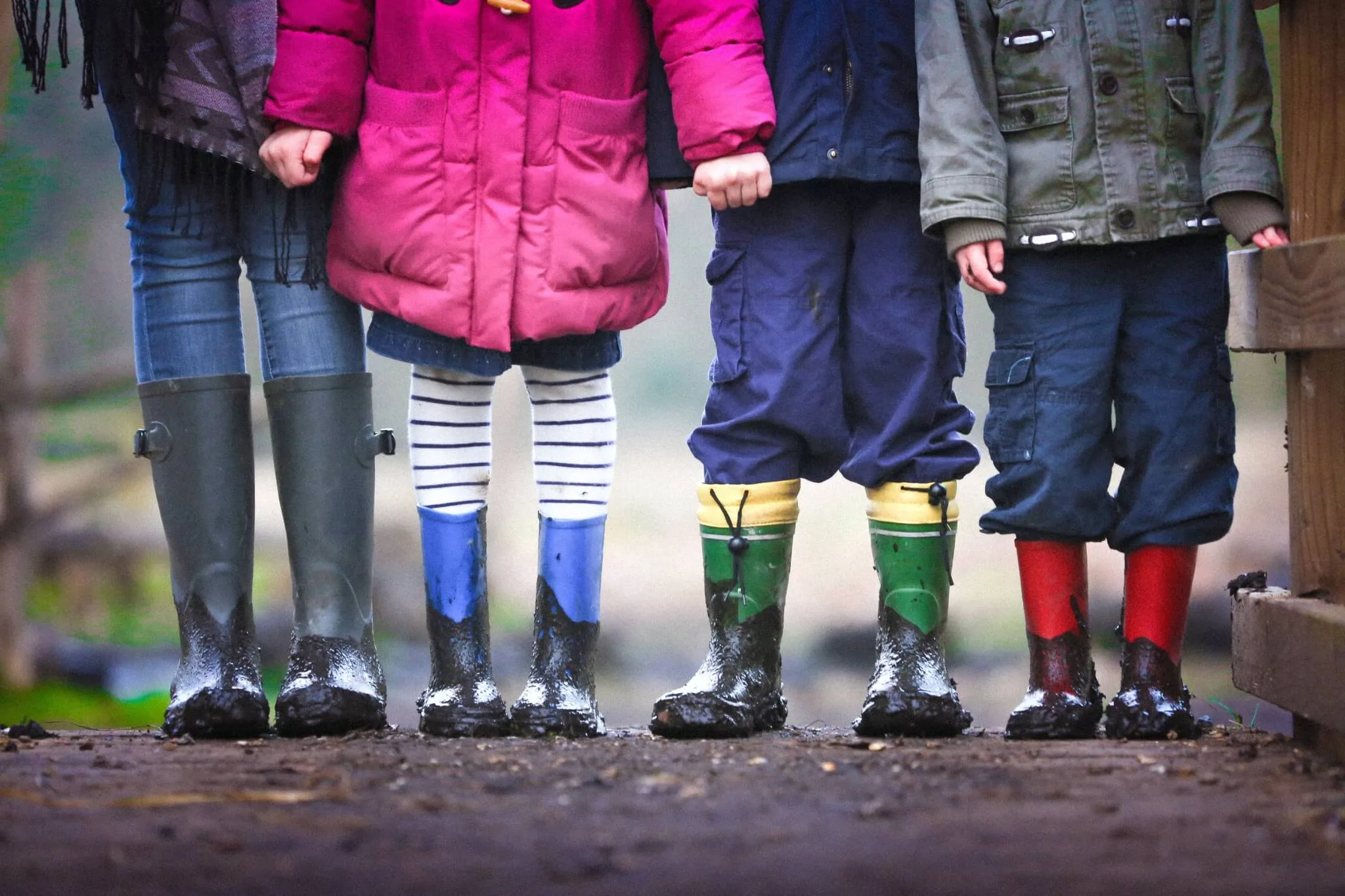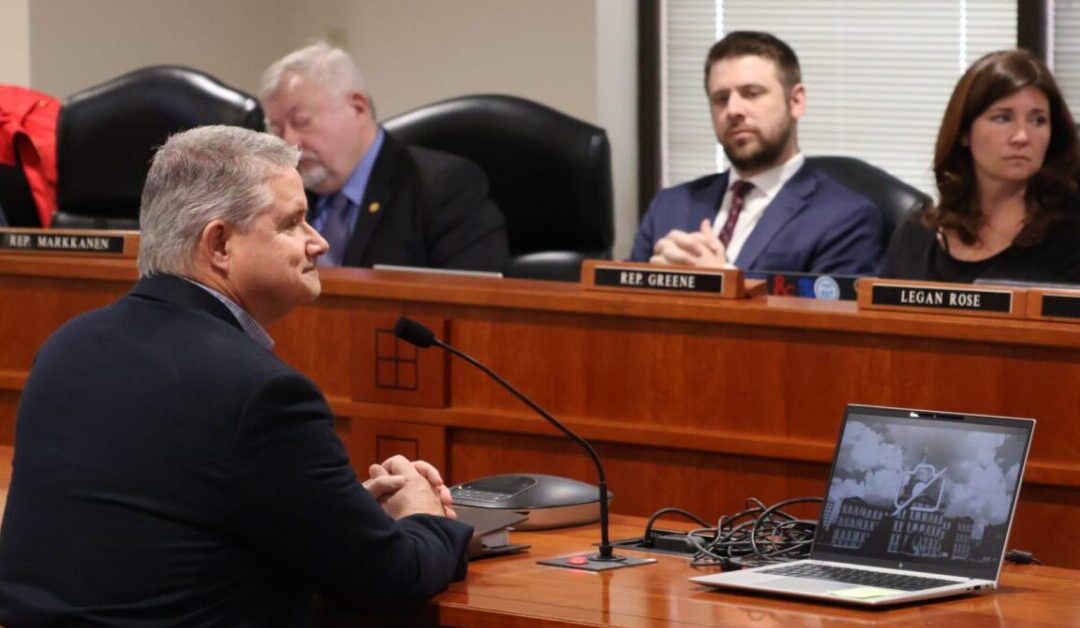
Photo by Ben Wicks on Unsplash
Two Michigan children were pronounced dead after being found face-down in a pond last week. They were reported missing 40 minutes earlier. Also last week: A four-year-old boy in Virginia was gone for 11 hours before he was found (safe). Both cases made parents wonder: Do we know what to do if our child goes missing?
Editor’s Note: This article was adapted from the story “Four-Year-Old Found Safe: Are You Prepared If Your Child Went Missing?” by Amie Knowles, originally published in The ‘Gander’s sister publication in Virginia, Dogwood.
Sometimes it doesn’t feel possible until it happens in your own community. In this article, we start with a quick look at two communities who suffered the horror of missing kids last week (skip ahead if this type of reporting is not for you right now). Next, we lay out what experts say parents can do to prepare for missing-child scenarios. And finally, we list resources families can use to learn more.
Last Week
Last Tuesday night, a four-year-old boy, now safely reunited with his parents, reportedly wandered away from his Pittsylvania County home in Virginia. An alert went out from local authorities and word quickly spread on social media. The description asked for people to be on the lookout. Local media stations — even the classified ads paper — started spreading the news about the alert around 9:30 p.m.
While efforts first appeared to rely on emergency responders, those agencies also coordinated multiple volunteer search groups to disperse throughout the area during the night. At daybreak, there were no updates on the boy’s location or condition, but less than an hour later, searchers found Wyatt safe and sound — along with a neighbor’s dog he’d likely wandered off with nearly 11 hours prior.
But the story doesn’t always have a happy ending.
Last week in Michigan, two toddlers were pronounced dead after they went missing for about 40 minutes and were later found floating face-down in an Otsego County pond, reports the Detroit Free Press.
By the time Michigan State Police troopers responded to the call in Hayes Township, they were too late.
That situation unfolded far too quickly for an Amber Alert or for local media stations to spread the news about the missing children.
How to Prepare
Of course, no parent ever wants to think about the possibility of their child going missing. But whether a toddler gets lost in a crowd, a child explores beyond their boundaries, or a natural disaster displaces a family, it’s beneficial to have a plan in place. That can involve a specified meeting place if a separation occurs, but there are also preliminary actions parents and caregivers can take before a potential situation arises.
First, check in with your local law enforcement agency, which can tell you about what services they offer or know about.
Next, start or update a record about your child, which would make finding them easier. The FBI recommends completing a National Child Identification Program kit, which includes an inkless fingerprint set, cards for detailing your child’s physical descriptions, a place to keep current photos, and an easy-to-use swab for a DNA sample.
The National Center for Missing & Exploited Children, headquartered in Virginia, also provides a similar Child ID Kit. The informational packet prompts caregivers to write down their child’s personal information, physical characteristics, distinguishing characteristics, and medical information. The form also provides a designated location for a current photo of the child, as well as a full set of fingerprints.
You should also decide when and how you’ll introduce “real” names for family members to young children. Knowing the names Mommy, Daddy, grandparents, and other loved ones and caregivers have will help a child communicate if they’re separated from you. Make a game out of it by playing “business” or other roles where kids might be able to imagine you interacting with people outside of the family.
Use familiar tunes to make songs out of your address and phone number, making them easy for kids to remember. And teach them how to use your phone to make an emergency call.
For older kids, make a habit of having them navigate during your walks and drives, spy two exits in every room, and practice speaking with adults on your behalf.
Another good exercise for many kids is to role play being assertive. Try it out in a game like charades, by showing them how to stand up for themselves, how to call for help, and when to stop being polite. Then, have them try it – there’s a difference between thinking about how it might feel and feeling the strength of their loud voices, squared shoulders, and insistent energy.
More Resources
Safewise has a list of articles about ways to keep families safe, like parental control app reviews, safety hazards to watch for around the house, GPS trackers and wearables, and preventing pool disasters.
Child Find of America has a list of facts & stats about missing children, and prevention printables for groups, classrooms, and caregivers.
MissingKids.org has a PDF roundup of resources and missing kids laws.
Here’s a roundup of childcare regulations, background check laws, and other childcare-related safety information.
This is an article about teaching young children habits for personal safety.
Huffpost asked experts about how to talk to grandparents about child safety.
Politics

Investigator says Trump, allies were uncharged co-conspirators in plot to overturn Michigan election
DETROIT—A state investigator testified Wednesday that he considers former President Donald Trump and his White House chief of staff to be uncharged...

Michigan Dems introduce ‘Child Care for All’ legislation to lower costs for families
Lawmakers say Michigan is facing a ‘child care crisis.’ But a series of bills introduced this month would help to make child care (much) more...

Families of mass shooting victims and survivors call for education on new safe storage laws
BY KYLE DAVIDSON, MICHIGAN ADVANCE MICHIGAN—Parents of victims and survivors of the Oxford High School and Michigan State University shootings on...
Local News

US government agrees to $138.7M settlement over FBI’s botching of Larry Nassar assault allegations
DETROIT—The US Justice Department announced a $138.7 million settlement Tuesday with more than 100 people who accused the FBI of grossly mishandling...

NFL draft has been on tour for a decade and the next stop is Detroit, giving it a shot in spotlight
DETROIT—The NFL draft has taken the show on the road for a decade, giving cities around the country a chance to be in the spotlight. Detroit is on...






